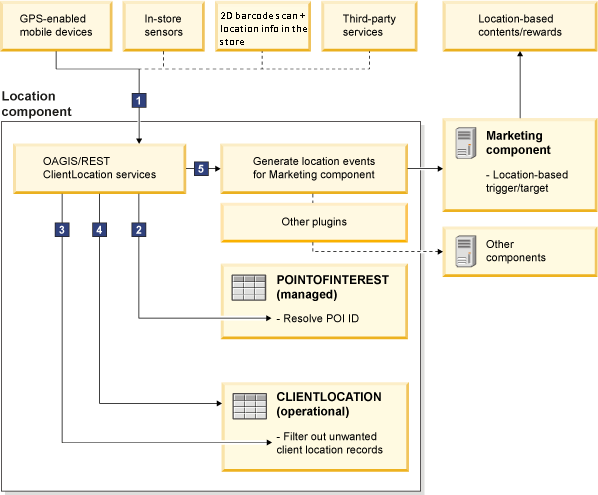Location-based services
HCL Commerce uses location-based services to target customers using Global Positioning System (GPS)-enabled mobile devices.
HCL Commerce uses the Location component to collect and process client location records. This component provides a set of OAGIS and RESTful services for collecting client location records. The component also provides business logic with extension points for resolving and filtering client location records, and for dispatching location events to the Marketing component.

Where the component is responsible for:
- Collecting client location records, such as a customer's location, generated by location sources such as a customer's GPS-enabled mobile device.
- Resolving information missing from the client location records, such as resolving the Points of Interest corresponding to a geographic location.
- Filtering out unwanted client location records, such as those with geographic locations that cannot be resolved to any Point of Interest.
- Persisting the client location records into the HCL Commerce
database.Note: The Location component does not act as a location data repository. That is, it only persists the last known location of a client for resolving or filtering client location records.
- Dispatching location events to other components, such as the Marketing component.
Smart phone and tablet starter stores integration
Customers with GPS-enabled mobile devices can receive location-based content and rewards in smart phone and tablet starter stores. For example, customers can view store flyers for nearby store locations. In addition, customers can check in to nearby store locations on their mobile devices to receive rewards such as coupons.
Local marketing activities
Marketing managers can create location-based marketing activities to deliver location-based content and rewards to customers, according to your business needs.